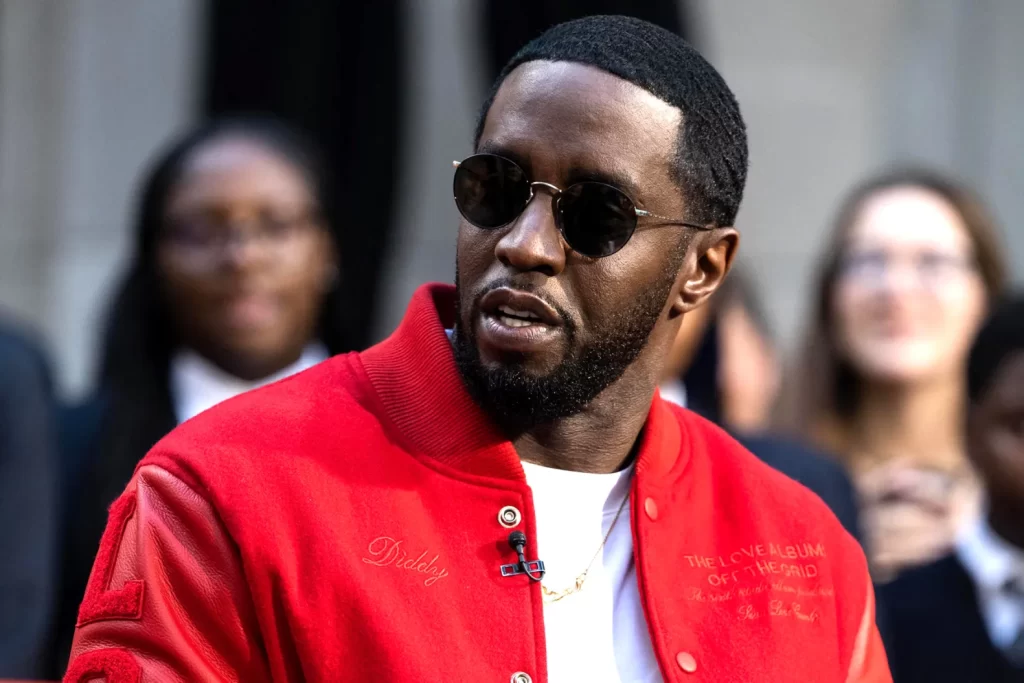Sean “Diddy” Combs, the embattled music mogul, is taking a stand against a $30 million lawsuit filed by a former employee, alleging that the legal action is an attempt to extort him through salacious claims and media manipulation.

In a motion filed Monday in the U.S. District Court for the Southern District of New York, Combs’ legal team seeks to dismiss the lawsuit brought by music producer Rodney “Lil Rod” Jones, characterizing it as a “run-of-the-mill commercial disagreement” disguised as a sensational conspiracy.
The lawsuit, initially filed in February by attorney Tyrone Blackburn on behalf of Jones, accuses Combs of sexual harassment, drugging, and threats during Jones’ employment from September 2022 to November 2023.
An amended complaint in March further alleged Combs’ involvement in a “RICO enterprise” and a “sex trafficking venture,” invoking the Racketeer Influenced and Corrupt Organizations Act typically used to combat organized crime.
Combs’ motion, obtained by NBC News, argues that Jones’ complaint fails to establish the necessary criteria for a RICO case and lacks legal standing. The music mogul’s attorneys describe the lawsuit as a 100-page document filled with “countless tall tales, shameless celebrity namedrops, and irrelevant images,” asserting that it provides no specific dates or instances of the alleged sexual harassment.

Erica Wolff, Combs’ lawyer, stated, “Mr. Jones’s lawsuit is pure fiction — a shameless attempt to create media hype and extract a quick settlement. There was no RICO conspiracy and Mr. Jones was not threatened, groomed, assaulted, or trafficked.” Wolff expressed confidence in proving the claims are fabricated and securing a dismissal in court.
The motion filed by Combs’ team suggests that Jones’ “true purpose is to generate media hype and exploit it to extract a settlement.” It also points to a recent referral of Jones’ attorney, Tyrone Blackburn, to a grievance committee by U.S. District Judge Denise Cote. The referral came after what appeared to be a pattern of cases with jurisdiction issues, though unrelated to Combs.
Blackburn, responding to NBC News, denied the allegations in Combs’ motion, stating, “This is clearly a billing exercise by individuals who are late to the game and are attempting to fill their pockets before their client is indicted.” He defended his legal approach, saying, “If you don’t do salacious shit, I won’t have salacious things to file.”
This lawsuit is one of several legal challenges facing Combs. Blackburn has filed three other suits against the music mogul since last year, including allegations of sexual assault from decades ago.
One such case involves Liza Gardner, who claims Combs sexually assaulted her in 1990 or 1991 when she was 16 years old. Another lawsuit filed by Blackburn alleges Combs sexually assaulted April Lampros four times between 1994 and the early 2000s.

Combs is also named in a lawsuit involving his son, where he faces charges of premises liability and aiding and abetting an alleged sexual assault during a 2022 New Year’s Eve yacht party.
The music industry titan settled a high-profile lawsuit in November 2023 with former partner Cassandra “Cassie” Ventura, who accused him of rape, sex trafficking, and physical assault throughout their 11-year relationship. While Combs denied the abuse, surveillance video later emerged showing him violently assaulting Ventura in a Los Angeles hotel in 2016, prompting a public apology from Combs on Instagram.
Adding to his legal woes, Combs is currently the subject of a federal investigation by the Southern District of New York. In March, federal agents raided his homes in Los Angeles, Miami, and New York.
Sources familiar with the ongoing legal troubles confirmed to NBC News in July that a federal grand jury was hearing evidence as part of the investigation, though no criminal charges have been filed against Combs.
As the legal battle unfolds, the music industry and public alike are watching closely. The case highlights the complex intersections of power, celebrity, and accountability in the entertainment world, while also raising questions about the use of civil lawsuits and media attention as tools in high-profile disputes.
The outcome of this motion to dismiss and the broader legal challenges facing Combs could have significant implications not only for his career and legacy but also for how similar cases are approached in the future.
As the court weighs the merits of the allegations against the defense’s claims of extortion and fabrication, the case continues to captivate public attention and fuel discussions about misconduct and justice in the music industry.


